In a statement, the association explained that “sky-high” prices for diesel and electricity are placing additional costs on member businesses already hit by the removal of subsidised red diesel and driver shortages.
The WRA is now seeking to alert wood suppliers – such as local authorities from HWRC sites and waste management companies – to the market pressures so they can prepare for the “inevitable changes that are coming”. This is interpreted as a strong warning from the association that collection costs for waste wood are to rise and councils could be hard hit. The move comes just two years after the wood recyclers were desperate for material because HWRCs were closed for a time during the pandemic.
Biomass
Councils could feel aggrieved they are being asked to stump up more to dispose of wood, albeit that it is cheaper than landfill or energy from waste, while power companies reap the benefit of using the material as fuel.
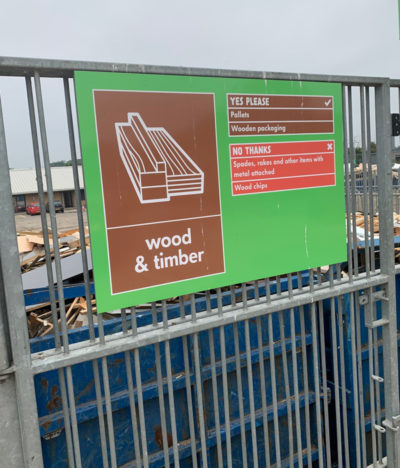
Around 2.4 million tonnes of waste wood was sent to biomass plants by wood recyclers to generate electricity in 2021, with power prices more than trebling recently to around £210 per MW hour.
While the WRA say it is “misleading” to say biomass plants are all benefitting from this as many have “hedged positions and pre-sold output”, others close to the scene have said that biomass plants are “in a sweet spot”.
This is because they are able to benefit from higher electricity prices, but also are not the focus of any government ‘windfall taxes’, so are seen as “cash cows”.
Because of the high prices, it is reasoned by some that the biomass plants should be able to pass some of their extra earnings back down the chain and that this could cover extra operational costs, or at least a part of these, which are faced by wood recyclers.
Electricity
The most recent available data from Ofgem, the government regulator for electricity markets in the UK, shows the price of wholesale electricity rose from £53.08 per MWh in March 2021 to £214.46 on May 30.
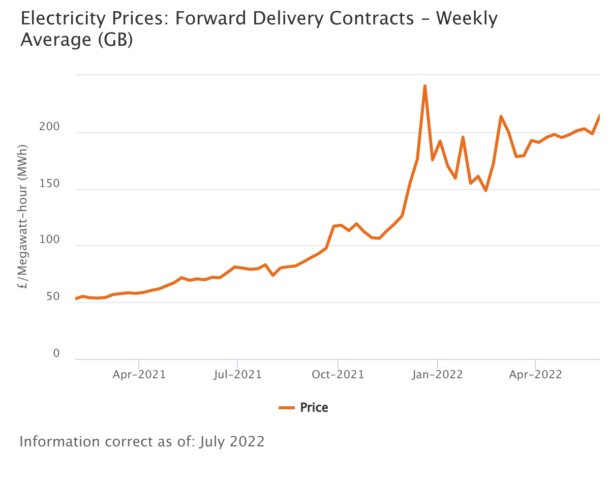
Unprecedented
Julia Turner, executive director of the WRA, said: “The cost of reprocessing waste wood has gone through the roof. In the past 18 months there has been a steady hike in costs to levels which are now unprecedented, placing a huge burden on our members.
“A lot of mobile plant used to run on red diesel but since the sector’s entitlement to use this ended in April, costs to run these machines have rocketed and now we are also seeing record fuel, haulage and energy prices.”
Specifically on biomass plants, Mrs Turner told letsrecycle.com: “While power prices may be significantly higher at present, it is misleading to suggest that biomass plants will all be benefiting from this. Many would have hedged their positions and pre-sold their output earlier and will not achieve anywhere near today’s market price. Once sold they are obliged to provide that power so if they suffer an outage the cost of buy-back also becomes a very real and very significant additional cost.”
It is misleading to suggest that biomass plants will all be benefiting
– Julia Turner, WRA
Fuel
Plants which haven’t pre-sold electricity at a set price will be benefitting from selling this at a higher price on the spot market, with estimates that around 30-40% is sold this way.
Some biomass plant operators have said they themselves are seeing higher costs for things such as lime, and parts for repairs.

One expert on the sector also explained that biomass operators “have endured some hard times so this is all part of the highs and lows that the long term investor has to endure”.
Mrs Turner added: “The rising costs will impact both gate fees and end product prices, but we are keen to raise awareness among waste wood suppliers who may not understand the cost pressures our members are under.
“Our sector provides an established, compliant and environmentally sound destination for UK waste wood and still remains a substantially cheaper option than sending material to landfill at the cost of around £120 a tonne”.
Awareness
Mrs Turner concluded: “We want to raise awareness that it’s tough out there at the moment for our members. They are all being squeezed and many will have no choice but to pass those costs on.
“While this may not be welcome news, the sooner our suppliers understand the pressures, the sooner they can prepare for the inevitable changes and make the market more resilient going forward”.



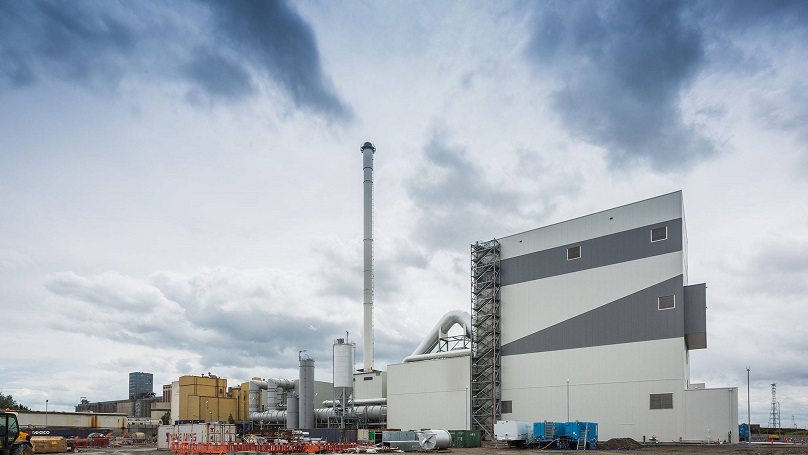

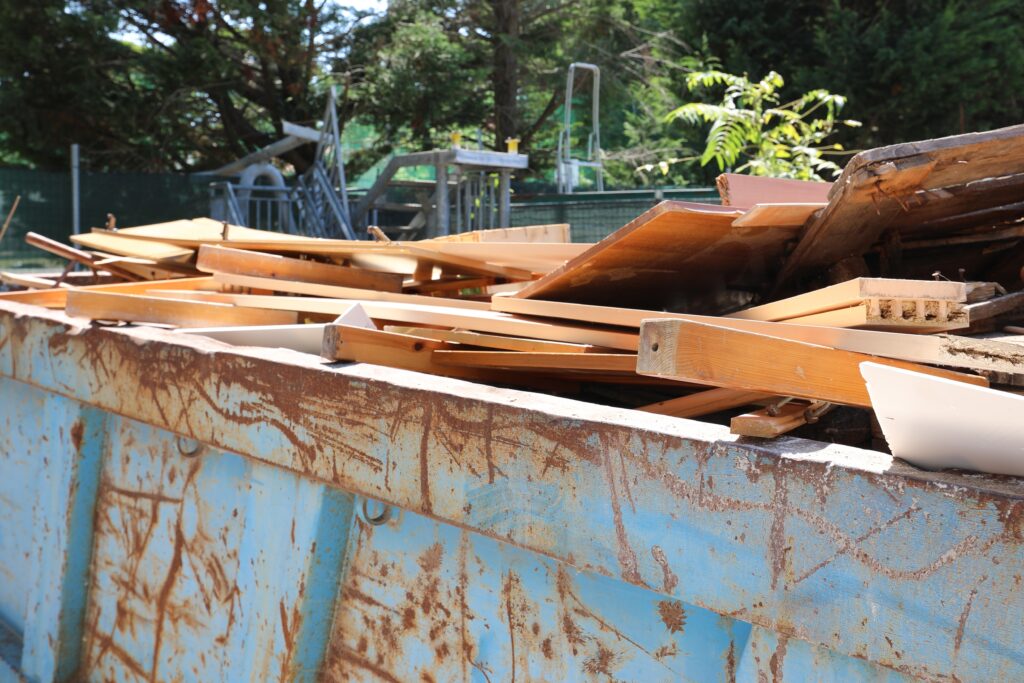

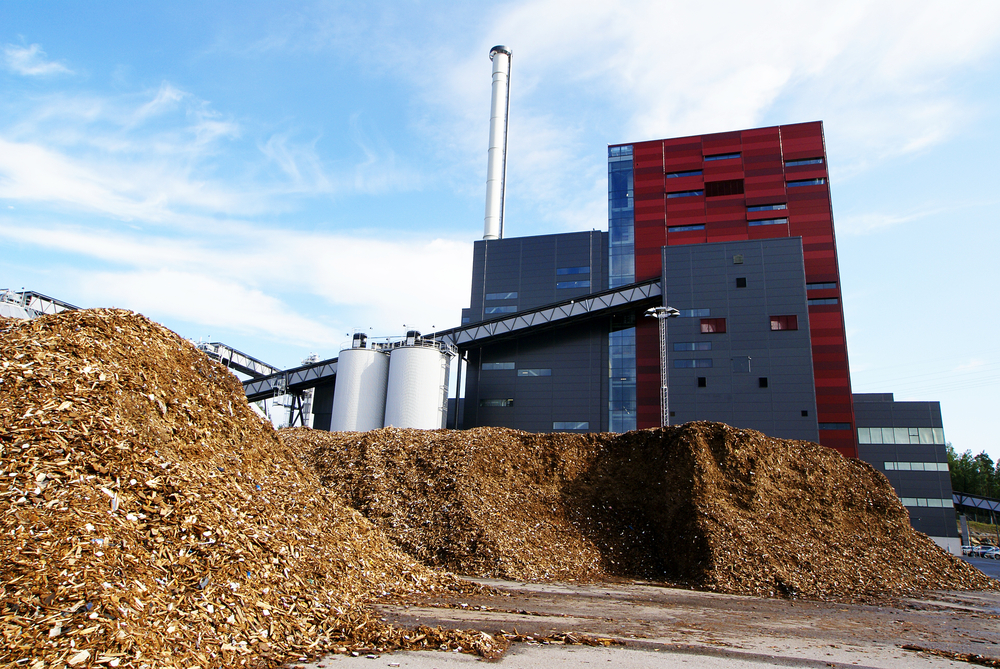


One would hope that current energy prices will help offset some of these costs.